Civil Liberties, Habeas Corpus, Human Rights, Truth to Power
Podcast: Play in new window | Download
Updates:
—
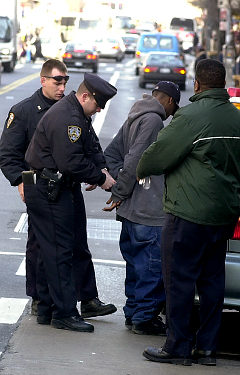

CCR’s Second Stop and Frisk Lawsuit: Floyd, et al. v. City of New York
In the beginning of 2009, statistics show that 84 percent of the people who were stopped and frisked by the New York City Police Department were black or Hispanic. Very few stops yielded any contraband or weapons. Critics call these stops, racially oriented harrassement and despicable. Not everyone stopped by police is frisked however. About 59.4 percent of all Hispanics stopped were also frisked, 56.6 percent of blacks stopped were frisked and 46 percent of whites stopped were frisked. Whites had composed less than 16 percent of these stops in early 2009. The New York City Police Department insists the stops help fight crime. The Center for Constitutional Rights has filed a class-action lawsuit against the city and the Police Department over the stops. Please visit MalcolmXGrassRootsMovement.
Plaintiff David Floyd:
- The case is surrounding stop and frisk cases, particularly in black and Latino communities.
- I’ve been stopped in community over the past couple years. I live in Parkchester in the Bronx.
- Both times, I was stopped, I was going about my daily life, I work and go to school. The second time I was stopped, was on the premises where I live. The first time I was stopped, they gave no probable cause and I asked for names and badge numbers.
- The second time they said there were a string of robberies in the neighborhood. It’s a script that we found, the police go by continually.
- It’s almost as if you’re walking down the street and somebody jumps up out of no where to rob you. They go in your pockets, they take your wallet, but in this instance, what they try to walk away with is your dignity.
- There are ways to very calmly challenge and ask questions but they don’t like that. I ask “why is it that I’m being stopped, do you have probable cause?” Part of our response as a community has to support young people, anyone and everyone who are getting stopped illegally.
- You should make sure that they know, that you know your rights. People have cameras now, we need to make sure we document this constantly. Community members become activists so that internationally, there’s a voice that comes out.
- The securities industry is benefiting from tactics being used against black people here in the United States. Tactics that are being used against Palestinians, Iraqis, Afghans. The tactics that the NYPD think are successful are being exported into other cities. There is a veil of accountability with the CCRB
- Challenging state violence is the responsibility of those who go through it.
——
Sunita Patel:
- The important thing to remember is that the Constitution requires that police have a reasonable suspicion that a crime is about to be committed. In 2005, there were 4 hundred thousand stops.
- We also allege in our lawsuit that there is a failure to train and discipline police officers, that goes all the way up. It’s important that there is still this historic memory of Amu Dudiallo, Abner Louima.
- We are also seeking more accountability within the CCRB, the Civilian Complaint Review Board, the body to hear civilian complaints regarding the NYPD. We think the CCRB should have it’s own prosecutorial or enforcement powers. There is a sense in the community, how can we bring change about when the system is so amomous?
- We also think there has to be a change in the way that police train rookie cops and undercover police officers that are flooding communities. Make the Road By Walking / Malcolm X Grassroots Movement
- We don’t have the breakdown of arrests racially, yet. The number of stop and frisks are on the rise and we should take a stand against it. We think we will be able to obtain information about widespread practices
Guest – Sunita Patel, Center for Constitutional Rights staff attorney, Sunita is involved with racial profiling, immigrant rights and other human rights litigation.
Guest – David Floyd, plaintiff in the case and Bronx resident. MalcolmXGrassRootsMovement
—
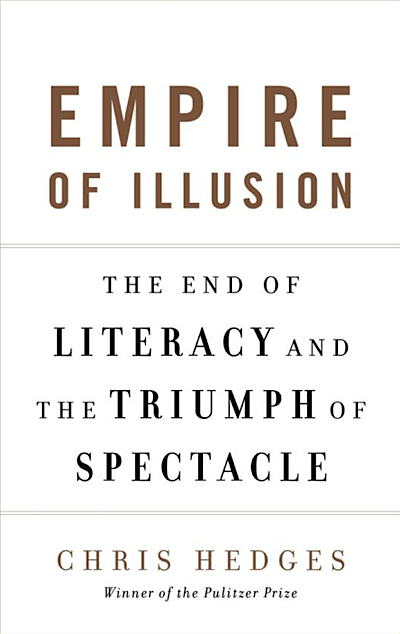

Chris Hedges – Empire of Illusion: The End of Literacy and the Triumph of Spectacle
We are delighted to have back with us, award winning journalist and author Chris Hedges. His new book Empire of Illusion: The End of Literacy and the Triumph of Spectacle thoughtfully examines the erosion of American culture and levels a heavy criticism. Chris Hedges says we are living in a totalitarian society that is image based. This image is not benign, he says. It is skillfully manipulated by for-profit corporations to get us to do things not in our interest. Right now, 40 million Americans are illiterate. In this media landscape, nuanced discussions of ideas are replaced by carnival barking and interruption, meanwhile newspapers and publishing companies are in decline. Hedges has called it a slow motion coup d’etat where democracy and the Constitution are held up as ideals while the levers of power are driven by destructive forces.
Chris Hedges:
- I think the best way to see how illusionned we are as a culture is through prism of popular entertainment.
- We’re of course a completely pornified society. The largest users of porn on the internet are teenagers.
- What are the messages being pumped out whether its the WWF or porn.
- Porn isn’t the back lit shaved bodies of the playboy channel. It’s violence and not simulated violence.
- The women are popping pain pills and require surgery after sex. When you look at the stills from Abu Gharib, they could be stills from a set of a porn film, and I don’t think that is accidental.
- The narrative that we use to explain ourselves to ourselves is no longer print based.
- 42 million in the US illiterate, 50 million semi-illiterate.
- 80 percent of American households didn’t buy a book last year. The danger of that is the images we are fed are skillfully done by those with an agenda and power. It is meant to confuse a brand with knowledge and not see the underlying structures of the corporate state.
- We are a culture severing ourselves from verifiable fact and replacing it with a culture where lies become true where opinions and facts are interchangable.
- Intellectual thought by its nature is subversive, because it questions structures and assumptions.
- I think there has been tremendous cultural transformation, with the rise of the corporate state. Our form of inverted totalitarianism, which has been designed to shut out the bottom two thirds of the country.
- The jobs that we are shedding are not coming back, we are entering a form of neo-feudalism.
- A dream is something you strive towards, an illusion is something you live in.
- The system has been so ethically perverted by corporations, that we now sit by passively and allow our for-profit health care industry to legally hold sick children hostage while parents bankrupt themselves trying to save their sons or daughters.
- What kind of society I would like to see is one wresting back the government from the hands of the corporations. Once somebody is dead, they’re not worth anything in a commodity culture.
- We have to walk out of the mainstream, don’t fall for this what Ralph Nader calls the least worst.
Guest – Chris Hedges, the author of many books specializing in American and Middle Eastern politics and society. He spent nearly two decades as a foreign correspondent in Central America, the Middle East, Africa and the Balkans. He was also the Middle East bureau chief for The New York Times.
—————————————————————–
Civil Liberties, Guantanamo, Human Rights, Iraq War, Targeting Muslims, Torture, Truth to Power
Podcast: Play in new window | Download
Updates:
—-
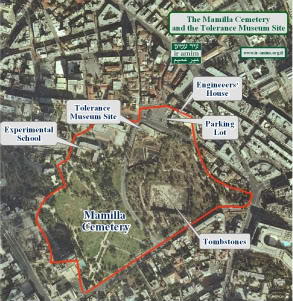
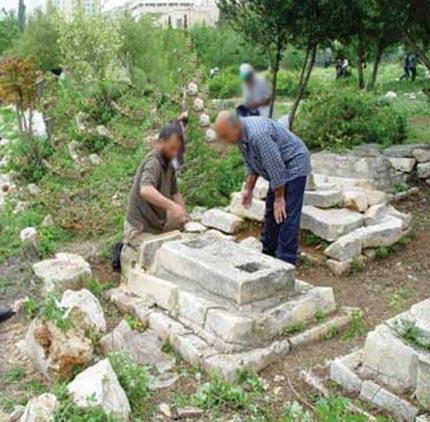
Simon Wiesanthal Museum of Intolerance: Mamilla Cemetery In Jerusalem
Critics continue to speak out against plans to build the new Simon Wiesanthal Museum of Tolerance near the Mamilla Cemetery. The cemetery is an 800 year old Muslim burial in the heart of Jerusalem and covers about 12 percent of the plot of the new 250 million dollar museum. Today we examine the ongoing legal fights to preserve the cemetery. Mamillacampaign.org
The museum construction has been halted several times in the last few years. Recently, the Israel’s Supreme Court ruled to go ahead with the continued construction, since there was no objection in 1960 when a parking lot was built over a small part of the cemetery. Controversy swirls around the project, the previous architect of the museum project designed an imposing futuristic mix of titanium, glass and stone. Police detain filmmakers
The initial outcry opposing the project came from the Palestinian community, Israeli archaeologists and Ultra-Orthodox Jews. Meanwhile, construction of the museum continues in portions of the area where human remains have not been found. CCR Synopsis
Dima Khalidi:
- Mamilla Cemetery is a huge piece of land located in West Jerusalem It’s an ancient cemetery dating back possibly to the 7th century. Palestinians buried their relatives there since at least 1948
- It has the ancestors of the biggest Jerusalem families including my own family.
- The cemetery has been constantly built on since the fifties and sixties. Our petition to several United Nation bodies is really part of a larger opposition. UN rapporteur on Freedom and Belief and the rapporteur on Ending Racial Discrimination
- We are asking that they label the Mamilla cemetery as a historic site and protect it and move this project, also find the remains that have been dug up so that the Palestinian families can re-bury them. 250 sets of bones removed, at least.
- There are four layers of burials dating back to the 11th century. 2 thousand people buried there.
- The museum’s archeologist called it an archeological crime. The mayor of Jerusalem offered a different site.
- Michael Ratner: what’s going on here is the expulsion of the memory and history of Musliims and Palestinians from Jerusalem
- Israeli Supreme Court handed down a decision in December 2009 affirming previous decision that it was legal to build this museum on top of the cemetery.
Guest – Palestinian-American lawyer Dima Khalidi. Dima is based in Chicago, she has a JD from DePaul University College of Law in Chicago and a Masters from the School of Oriental and African Studies, University of London in International and Comparative Law with a focus on Islamic Law. She has worked with the People’s Law Office in Chicago, and the Center for Constitutional Rights (CCR) in New York. Prior to studying law, she spent two years working in the West Bank at Birzeit University on a project studying the role of customary/tribal law in Palestinian society. She has been working on the Mamilla cemetery case with CCR and other attorneys in recent months.
——-
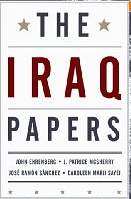
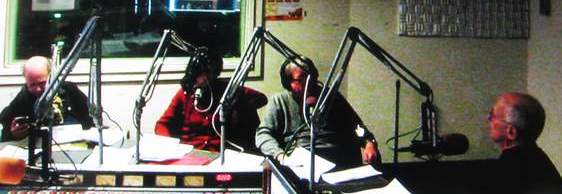
The Iraq Papers: John Ehrenberg
Political science professor and author John Ehrenberg joined hosts live in the studio to talk about a book he had worked on with 4 other colleagues titled The Iraq Papers. (From the review) The book offers a compelling documentary narrative and interpretation of this momentous conflict. With keen editing and incisive commentary, the book weaves together original documents that range from presidential addresses to redacted memos, carrying us from the ideology behind the invasion to negotiations for withdrawal. These papers trace the rise of the neoconservatives and reveal the role of strategic thinking about oil supplies.
The authors also provide Congressional resolutions and speeches by President Bush, but internal security papers, Pentagon planning documents, the report of the Future of Iraq Project, and eloquent opposition statements by Senator Robert Byrd, other world governments, the Non-Aligned Movement, and the World Council of Churches.
John Ehrenberg:
- The book is a compendium of presidential speeches, position papers, news conferences.
- All the way from those who planned it beginning in the late 1990s to those who fought it in Iraq,
- This is not a neutral book, this is a reader with an attitude. It’s an anti-war reader. We try to be fair, and try to represent the many voices in the Iraq war. The lead up to the war so marked by misinformation, duplicity, lies, silence, everybody’s hands are dirty on this.
- As we debated, we really came to the one single variable that could be used to describe this war.
- with the fall of the Soviet Union is the late 80s, there arose in Washington a group of insiders who thought with considerable evidence that the world had passed from a bipolar system to a unipolar system, these groups became consolidated into groups one of which became PNAC (Project for the New American Century)
- Their view was that history had presented the US with a unique moment to cement its hegemony over the entire world. It’s really as simple and scary as that.
- Why care about it now? A lot of reasons. To what extent did unilateralism and pre-emption simply mirror the longstanding trends in American foreign policy? We split the middle and decided both were true.
- The people who signed PNAC go into the state department of the Bush Administration.
- The neo-conservatives haven’t disappeared. Every couple weeks, Dick Cheney gets on the air to attack Obama. Sara Palin.
- The architecture of the Iraq war, the reasons for it are still alive and kicking. There’s a very good piece in the NY Times that Gary Wills wrote. He says it doesn’t matter how reformist he/she is that comes into power, confronts the “deep state”
- They are deep beneath the surface and are immune to democratic power and they are not touched by elections or anything else. Coming into power (Obama) is confronted en mass by secret treaties, foreign obligations, military entanglements, hundreds of bases, hundreds of countries.
- Assuming he was honest, he would be unable to disentangle from that apparatus. I think Afghanistan is a way to protect Obama from the right on charges of abandoning Iraq. I don’t think Obama’s people are under any illusions to think that they can do what others couldn’t in recorded history.
- This is a holding operation to provide them with cover. We have a document called the Kubark, its a CIA manual (read manual) that became declassified a few years ago, that basically outlines all of the torture techniques.
- The basic orientation of the Bush foreign policy was organized around what we call pre-emption.
- These guys were clear in their intention, and the astounding thing is they announced their intention years before.
- None of this should have come as a shock to people. The claim was power trumps everything.
- You can’t solve political issues militarily, and that’s what the neo-cons were convinced they could do.
Guest – John Ehrenberg, author of Servants of Wealth, The Rights Assault on Economic Justice, and recently, The Iraq Papers. He’s also professor of political science at Long Island University.
Censorship, Civil Liberties, Criminalizing Dissent, Gaza, Human Rights, Targeting Muslims, Truth to Power
Podcast: Play in new window | Download
Updates:
——–

Gaza Freedom March Report Back Speeches
We hear strong speeches detailing the experience at the Gaza Freedom March by Ali Abunimah, co-founder of the Electronic Intifada and author of One Country: A Bold Proposal to End the Israeli-Palestinian Conflict and our own co-host Michael Ratner, president of the Center for Constitutional Rights. As many listeners know, hundreds of activists with the Gaza Freedom Marchers returned from Israel, Palestine and Egypt from the largest international mobilization of people in solidarity. The Egyptian authorities refused to allow the 1,365 participants from 43 countries to enter the Gaza Strip, but later 100 people were let in to Gaza.

Michael Ratner’s Article: From Hebron to Yad Vashem: Jewish Sorrow Justifying the Sorrow of Others
Gaza Freedom March Commitments Include:
- Palestinian Self-Determination
- Ending the Occupation
- Equal Rights for All within historic Palestine
- The full Right of Return for Palestinian refugees
From: Waging Nonviolence blog. The Egyptian government didn’t let most of the over 1,300 protesters from around the world into Gaza for the planned march, but those at Judson said that they witnessed a new stage in the emergence of a global movement, facilitated by the Internet, that may well be poised to end the international support that makes Israel’s policies possible. The lynchpin of the movement, the Cairo Declaration of the Gaza Freedom March, was drafted by would-be marchers while they waited in Egypt.
—-

Faculty for Israeli-Palestinian Peace
In the wake of Gaza Siege earlier this year, many groups such as Code Pink have brought delegations of people to Israel to visit and bring support to Palestinian refugees and families. Today we talk with Joel Bitar, he’s a student who traveled to Israel with the group Faculty for Israeli-Palestinian Peace. The group is an international network of academics and students supporting a complete end to the illegal Israeli occupation of lands seized in 1967. Last summer, Joel was among many who visited Israeli universities, the Israeli settlements in the West Bank, and stayed with Palestinian families. These delegations call on the international academic community to take a stand in supporting the end to occupation in Gaza and the West Bank.
Joel Bitar:
- Most of my life I tried to hide my Palestinian identity and this trip was all about confronting and realizing who I am. For so long, especially after 9/11 it wasn’t respectable to be an Arab in America.
- I was kind of ashamed of my Dad’s history and culture for a long time. This trip was about inner healing and understanding where I came from.
- I went to the West Bank for a month and a half.
- It’s all about fitting in and surviving, being a confrontational force in a culture is something I didn’t have the courage to do unfortunately. My family has been apolitical. Doing activism around this (Gaza) has been unifying for my family.
- It’s enabled us to confront all the awful aspects of American culture and society.
- What happened in Gaza, shook me, woke me up. I’ve been doing a lot of investigating about the conflict, it seemed so mystical and mysterious. I read a couple books, it’s really not that complicated, it’s very simple. Palestine Peace Not Apartheid – Jimmy Carter / The Israel Lobby and US Foreign Policy.
- I learned about Norman Finkelstein and conflict between him and Alan Dershwitz.
- Simple in terms of the law. The law is very clear. You can’t acquire territory by force. Something you learn when you’re growing up, don’t bully people, don’t take their stuff.
- We visited numerous hot spots of the occupation, we went to Hebron, which is under vicious occupation by Israeli soldiers.
- 8 Meter high concrete slabs in many places. 85 percent of the wall runs on Palestinian land.
- Duel road systems and duel license plates.
- My Palestinian family pay taxes but don’t get the benefits of the taxes, they’re living in an imposed ghetto.
- They don’t have access to water 24/7 like every other Jew in the settlement. There’s garbage everywhere.
- We’ve been doing a lot of work with the Gaza Freedom March, with the anti-war movement at Hunter.
- A lot of the Jews who do an iota of research at Hunter know that what Israel did was awful. Breaking The Silence Report
Guest: Joel Bitar, a Hunter College student who traveled to Israel with the group Faculty for Israeli-Palestinian Peace. The group is an international network of academics and students supporting a complete end to the illegal Israeli occupation of lands seized in 1967. Joel is active with the Hunter College Campus Anti-War Network.
———————————————————————
Afghanistan War, Civil Liberties, Criminalizing Dissent, Death Penalty, FBI Intrusion, Human Rights, Prison Industry, Supreme Court, Surveillance, Targeting Muslims, Torture, Truth to Power
Podcast: Play in new window | Download
Updates:
—
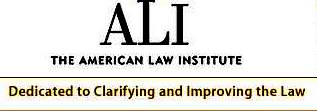
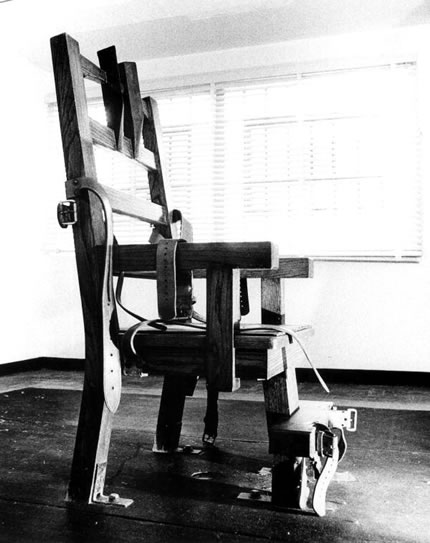
The Death Penalty Loses Support of The American Law Institute
In late 2009, the American Law Institute, which created the intellectual structure for the current capital justice system for nearly 50 years, essentially announced that its project has failed. The American Law Institute or A.L.I. is made up of around 4 thousand judges, lawyers and law professors, streamlines law and model codes to provide coherence in a federal legal system that is usually taking a varied approach. In a 1962 Model Code, the best legal minds of the institute framed a way for the death penalty to be carried out fairly, it then was re-instated in 1976. Now, the same people disavow the structure saying there is no fair system of capital punishment. The New York Times, in one article wrote (quote) the institute’s move represents a tectonic shift in legal theory. The article also points out that capital punishment was plagued by problems including racial disparities.
David Seth Michaels:
- American Law Institute, the intellectual group that tries to cobble together federal law in the United States including capital punishment. The capital punishment rules that they invented fifty years ago, have been the groundwork on which everything has happened since.
- So, it comes as a bit of a shock that fifty years later, they say “oh, oh.” It doesn’t work. It won’t work, we can’t make it work, so we’re going to fold up our tents. We won’t have anything else to do with it.
- Unworkable elements in the system: They’re troubled by the racial disparity on who gets executed, there’s tremendous disparity that is regional across the U.S. The prospect of capital punishment is ridiculously expensive. There’s risk of executing innocent people and politics of appointed judges who wantonly convict.
- It’s one of these circumstances that it is irreparably falling apart, broken. Everywhere you turn you find horrendous errors, egregious discrimination.
- The murder rate is higher in places where they have the death penalty than places where they don’t have the death penalty. Public support for the death penalty has been slowly and gradually decreasing.
- In the early 70s I became concerned about conditions in the prisons and mental hospitals in Tennesee and Mississippi. This is after the restoration of the death penalty in 1976.
- I can’t wait for the day that capital punishment is abolished. This system can’t die soon enough. You got nobody supporting the death penalty on an intellectual basis.
- National Coalition Against the Death Penalty.
Guest – Attorney David Seth Michaels. David has represented clients for 30 years, clients such as prison inmates in Mississippi and Tennessee. He’s worked with Brooklyn Legal Services B and with the Federal Defenders Service Appeals. He is also a novelist, has his own practice in New York.
—————————-

Lawyers You’ll Like: Jim Lafferty Part II
We’re delighted to have back with us attorney Jim Lafferty for the second half of our Lawyers You’ll Like series. He is the Executive Director of the National Lawyers Guild in Los Angeles and host of The Lawyers Guild Show, a weekly public affairs program on Pacifica radio sister station KPFK, 90.7 FM in L.A.
He has served as a chief officer of, and spokesperson for, various national anti-war coalitions, including the National Peace Action Coalition, the anti-Vietnam War coalition that organized the largest protests during that war; the National Coalition for Peace in the Middle East; and, the National Campaign to End U.S. Intervention in the Philippines. In the 60s and 70s, his law firm, Lafferty, Reosti, Jabara, Papakian & Smith, represented virtually all of the left political movements in and around Detroit, Michigan, during which time he became one of this nation’s leading experts on Selective Service law and military law.
In the early 80’s, Mr. Lafferty founded and chaired the largest A.C.L.U. Chapter in the State of Michigan. In New York City, in the late 80’s and early 90’s, he traveled the world organizing on behalf of the labor rights of merchant seafarers. During this time he also taught a course at the New School for Social Research, entitled, Vietnam: The War at Home and Abroad. More recently, Jim Lafferty was the Coordinator of the L.A. Coalition to Stop the Execution of Mumia Abu-Jamal, as well as a member of the national steering committee of the Campaign to Stop the Execution of Mumia Abu-Jamal.
Jim Lafferty:
- The man who was presented to me as my uncle, when I was sixteen he died, my mother acknowledged that he was my father. A friend of mine, she was a white nurse and she was married to a white school teacher and had a 3 year old daughter.
- She divorced that man and married a black surgeon. Her mother and former husband wanted custody feeling it was inappropriate for child to be raised in biracial home. George Crockett was one of the lawyers in the National Lawyers Guild in Michigan, took the case only if I clerked and read every opinion on domestic relations given down by the Michigan Supreme Court.
- We lost that case, and I continued working with that firm. They made a movie about that called “One Potato, Two Potato”
- The firm had been lawyers for UAW. I had gone down South to work with the lawyers guild in 1963, I was taking depositions for the Freedom Democratic Party. That’s where I met Mary Robinson.
- Bill Kunstler and Arthur Kinoy / Bill Kunstler’s book (1966) Deep In My Heart
- Michael Smith: Jeff Haas says Fred Hampton had Bill’s book, Deep In My Heart on his bed.
- When you finally take a stand, even though it leads to your incarceration and apparent lack of freedom, you’re finally free. Anti-war movements: Some friends of mine ran as peace candidates just to bring up the question of the war. We ran the entire campaign for 3300.00. Including 10 small billboards. Later we put together the Detroit Coalition to End the War in Vietnam Now.
- I wasn’t representing people anymore, but as the head of this coalition, you were doing public speaking, and getting an appreciation for what the power of people could do. To the credit of those lawyers who were winning those victories, even then they were saying to younger lawyers like me, but the real important thing is what goes on in the streets.
- Los Angeles Chapter of the National Lawyers Guild, – Labor Movement is vital. The anti-war movement is vibrant. You can’t blame the young activists for not knowing history, because nobody’s bothered to teach them. I’d like to see the movement coalesce around a meaningful left socialist third party.
- On the issue of the war, we’re worse off than we were with Bush.
- Healthcare plan: boondoggle for insurance companies, if you insure people who haven’t been insured, the profits of insurance companies aren’t gonna go down, you and I will pay more. Whereas the government should be paying more. NY Times article: putting aside the public option, you get past it by not dealing with it.
Guest – Attorney Jim Lafferty, Executive Director of the National Lawyers Guild in Los Angeles and host of The Lawyers Guild Show, a weekly public affairs program on Pacifica radio sister station KPFK, 90.7 FM in L.A.
————————————————————–
Censorship, Civil Liberties, Criminalizing Dissent, Gaza, Guantanamo, Habeas Corpus, Human Rights, Military Tribunal, Prison Industry, Targeting Muslims, Torture, Truth to Power
Podcast: Play in new window | Download
Updates:
—

Historic International Support: Gaza Freedom March Debrief
Hundreds of activists with the Gaza Freedom Marchers have returned from Israel, Palestine and Egypt bringing home incredible stories from the largest international mobilization of people in solidarity. We hear first hand accounts from our own Michael Ratner who with his family were among the 13 hundred solidarity marchers. We are also joined by Felice Gelman who has also returned from the Gaza Freedom March. As many listeners may know, the Egyptian authorities refused to allow the 1,365 participants from 43 countries to enter the Gaza Strip, but later 100 people were let in to Gaza.
Felice Gelman / Michael Ratner:
- It was a remarkable event despite not getting into Gaza. 1400 people from 43 countries, Europe India, Australia, South Africa. Within 3 days the Egyptian government went from we need more info, we’re working with you to . . . you’re not coming.
- We were unable to get a meeting place at any time for any group of people. The Egyptians said that any gathering of more than six people would be illegal. One of the prerequisites in order to get into Gaza is you don’t engage with local opposition in Egypt. In a way it was a perfect demonstration of what the siege in Gaza is all about.
- Egypt is a police state. There are 2 million police for a population of 60 million.
- Egyptian police are very brutal with their people. They’re disappeared, they’re tortured. No room for democracy. No support for a civil society to express itself to protest.
- The thing that was incredible was the number of Egyptians that wanted to join us. There were a couple of instances where people were hurt. The secret police would try to single people out at a demonstration and punch or hit them.
- They would identify women who were Muslims. I don’t know if was that they were Egyptian and they (secret police) thought they could get away with it. They beat up a 12 year old girl and a 75 year old woman, they were not discriminating.
- Egyptians (opposition) joined in with GFM demonstrations in Cairo.
- We had a demonstration at the US Embassy in Cairo, the police surrounded them for five hours before they could get into Embassy. The US Embassy didn’t seem to think that this was bizarre until they were reminded of their legal obligation to help their citizens.
- the US Embassy informed the Egyptian police that they had no objection of us going to Gaza.
- There were some people who went to Al-Arish, and the Egyptian police were onto that. They surrounded a hotel in Al-Arish
- (Michael Ratner) I can’t imagine the logistics and the organizing nightmare it was for you guys
- I can’t think of a time since the Spanish Civil War, that there was a contingent of such size and national breadth that traveled to assist people in their distress from a brutal attack.
- I think this was an incredible demonstration of where the world stands on Gaza.
- My kids 19 and 21, seeing people with the courage to go to these demonstrations from all over the world. Out of that I think there will be a global organizing structure.
- The other thing is the drafting of the Cairo Declaration, drafted by the South African delegation. Calling on the ending of the occupations of Gaza and the West Bank, primarily with global BDS movements. (Palestinian unified call)
- When Gaza was getting attacked, it was the South African trade unionists that refused to load the weapons that were being sent to Israel.
- The potential for labor to move on this is enormous and powerful.
- The Gaza Freedom March website will be handed over to the committee working on the Cairo Declaration.
- New York Report Back – Judson Memorial Church January 21 / 55 Washington Square S.
Guest: Felice Gelman, member of the Wespac Middle East Committee and a member of the Steering Committee that organized The Gaza Freedom March. She has traveled to Gaza twice since the Israeli invasion last year.
—————–
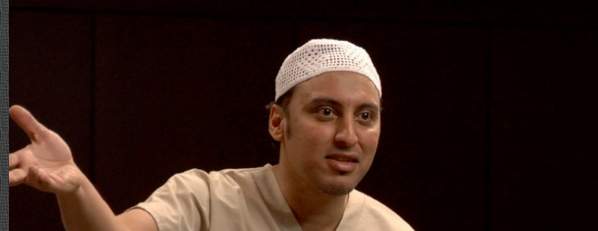
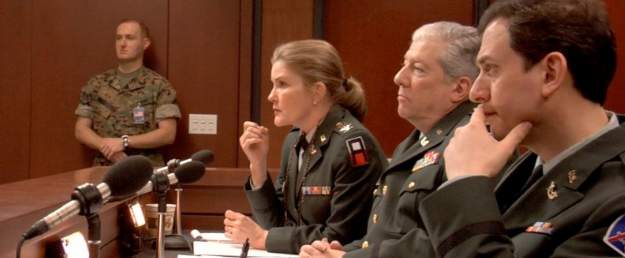
The Response: Sig Libowitz – Combatant Status Review Tribunals
January 11, 2010 marked the 8th anniversary since the Bush administration turned the US Naval Base at Guantanamo Bay, Cuba into a “enemy combatant” detention facility. Essentially re-commissioning the base as a torture chamber and legal black hole, where prisoner suicides are considered acts of war. As we’ve reported on in the last few months, the Obama administration has held on to the power to allow for a preventive detention system that would indefinitely jail terror suspects in the United States without trial. Meanwhile, military tribunals are now mainstream news, the tribunals are called Combatant Status Review Tribunals, where military justices discern who is an enemy combatant. These trials are also the subject of a 30 minute film titled The Response. The film is written and produced by actor Sig Libowitz who is transitioning from being an actor playing an attorney on the TV series Law and Order, to becoming a real lawyer. While in law school, Libowitz was tranfixed by the tribunal process of no jury and no defense lawyer. The film is based on actual court transcripts and is shortlisted for The Academy Award. The Response is screening at Columbia University’s School of Law on January 20th at 6pm.
Sig Libowitz:
- Michael Ratner: First of all there was no real process for people in Guantanamo. Then we won the right to Habeas Corpus, to go into a federal court and challenge their detention. At that point the Bush Administration set up a special process in Guantanamo.
- As we depict in the film, this is a process where the detainees don’t have a lawyer, they are not provided with the evidence that’s against them. The real transcripts told the story of the detainees and the judges in these CSRTs. From that I saw an incredible movie, and incredible opportunity.
- Because, I thought I had an understanding of what Guantanamo was all about, then I read the transcripts (of a CSRT) It gives a human dimension to the detainee and the military judges.
- Screening at Columbia Law School, Wednesday January 20th 6PM All the cast will be there and Shane Kadidal and Matthew Waxman. We’ve screened the movie at the Pentagon.
Guest: Sig Libowitz, an American lawyer, actor, film executive and director. Libowitz is notable for producing, directing and starring in a film, The Response, he wrote after reading some transcripts from Guantanamo captives‘ Combatant Status Review Tribunals. Libowitz is an executive for the acquisitions department of Turner Classic movies. He had a recurring roles in The Sopranos and Law and Order.
——————

Free Fahad Hashmi
Fahad Hashmi a Pakistani born American student, has spent nearly 2 1/2 years in solitary confinement in a Manhattan detention facility. He has been isolated for one of the longest periods in America as a suspect before trial. Hosts reported on this case in March 2008, we spoke with Fahad Hashmi’s father Syed Anwar, and Fahad’s attorney Sean Mayer. Fahad is accused of storing waterproof socks, ponchos and raincoats. The US charges were based on allowing an acquaintance “Janaid Babar” to store this rain gear in the closet of his London flat. Janaid Babar was a paid government cooperator who has been used to testify against Muslims around the world. Nicknamed ‘Supergrass’ by the British media, Babar was used by the UK government to testify against Omar Khyam and several other Muslim men in the so-called Fertilizer Case. Meanwhile Fahad’s trial is expected in January 2010, the prosecution will use Junaid as a main witness. Hashmi has been held under the SAM’s Special Administrative Measures that include a 23 hour a day lockdown, constant video surveillance of his cell and limited visitation.
(Fahad’s Brother)Faisal Hashmi:
- I’m under SAMs as our family is. Our visits with him, we can’t talk about it, but I can say from open court, he looks frail, he looks jittery He’s been in solitary confinement for 2 and half years.
- He’s in the Metropolitan Correctional Center a few blocks from here. Within his own cell, he’s videotaped at all times. He’s not allowed to talk out loud. He has a microphone in his cell.
- This is about deconstructing a human being, depriving him of his humanity. He’s 29 years old.
- Charged with four counts of material support for terrorism. He stored ponchos and rain gear.
- In 2004, this acquaintance while working on his Master’s degree stayed with Fahad.
- This was January 2004, he went to the US in April 2004, was arrested, and became a cooperating witness for the US government. At this time about 8 people got arrested, some in Pakistan, London and Canada, all on Junaid Barbar’s witness cooperation.
- In June 2006, my brother gets arrested. They tell Fahad, that Junaid gave the ponchos and gloves to Al-Qaeda and you gave material support to terrorists. You let Junaid use your cell phone, and Juanaid borrowed 300.00 from Fahad, saying that his ailing daughter needed the money. Fahad’s trial starts January 6, 2010
- FreeFahad.com This case has nothing to do with ponchos and socks.
Jeanne Theoharis:
- This is a case we need to be concerned about for those who value the first amendment. I had Fahad as a student in Brooklyn College in 2002
- There’s no way to understand this case without understanding the way Fahad was being watched many years ago even as a college student. We’ve sent a letter to the attorney general addressing 3 main issues, the conditions of his confinement, the way his due process is being violated and then first amendment issues.
- The letter was signed by more than 550 scholars and writers. Organizing among the Muslim student community.
- Theaters Against War calling attention to Fahad’s case.
- Free Fahad Vigil January 18, 2010
Guests: Fahad’s brother Faisal Hashmi and Jeanne Theoharis, an associate professor of political science at Brooklyn College, City University of New York. She was one of Fahad’s professors and she has been following this case.
———————————————————————






